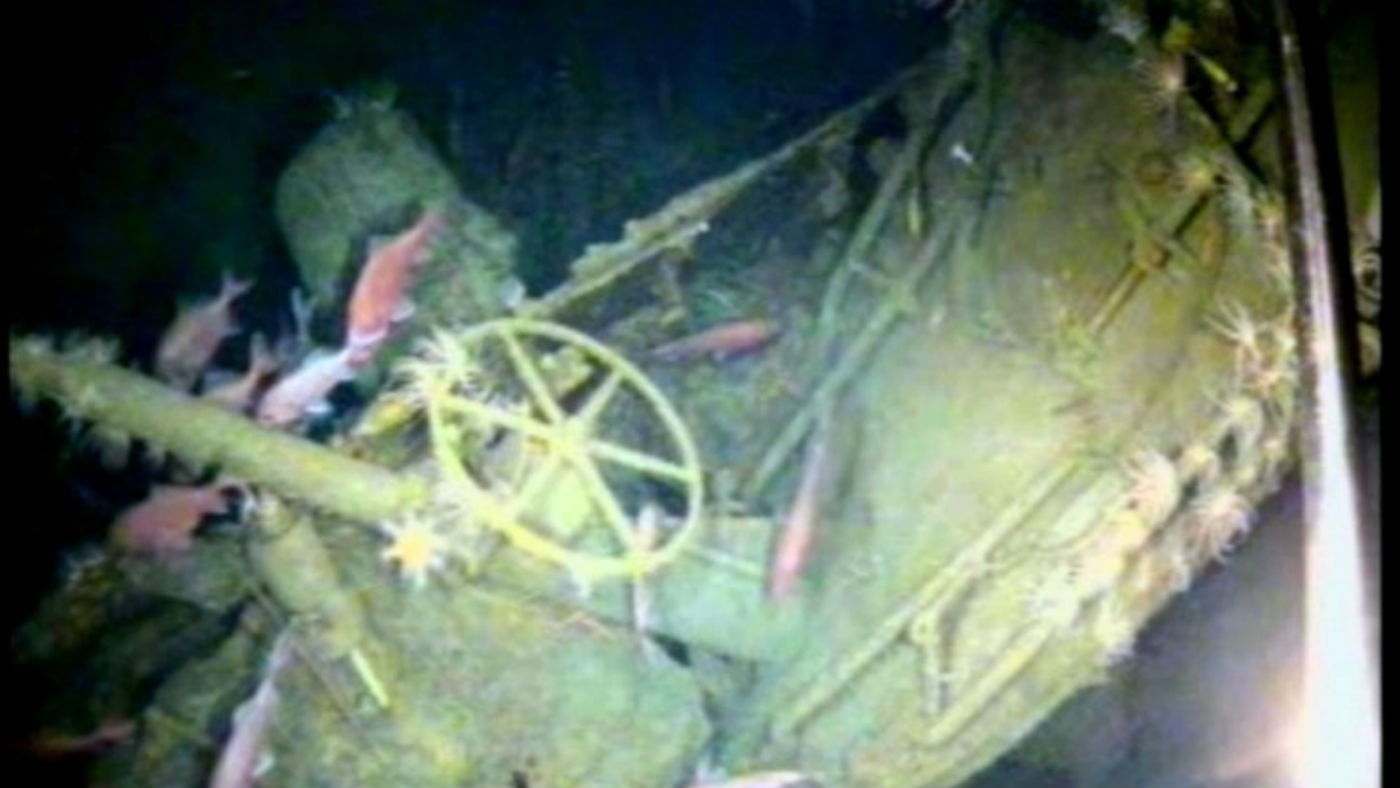Lost Australian WWI submarine found 103 years later
Wreck of HMAS AE1 discovered off Papua New Guinea

A free daily email with the biggest news stories of the day – and the best features from TheWeek.com
You are now subscribed
Your newsletter sign-up was successful
An Australian submarine which sank during the First World War has been found more than a century after it went missing.
The HMAS AE1 vanished with 35 men aboard on 14 September 1914, while patrolling for German ships off the coast of Papua New Guinea, then a German colony, the BBC reports.
The vessel was the first Allied submarine to sink during the conflict, and the first casualty of the Royal Australian Navy (RAN). For 103 years, its final fate remained one of the most persistent mysteries of Australia’s naval war.
The Week
Escape your echo chamber. Get the facts behind the news, plus analysis from multiple perspectives.

Sign up for The Week's Free Newsletters
From our morning news briefing to a weekly Good News Newsletter, get the best of The Week delivered directly to your inbox.
From our morning news briefing to a weekly Good News Newsletter, get the best of The Week delivered directly to your inbox.
This morning, however, the RAN announced that the submarine had been found around 300m below the ocean surface, near the Duke of York Islands, north-east of mainland Papua New Guinea.
The RAN collaborated with private organisations on the search, which was the 13th attempt to locate the wreck of the AE1, Reuters reports.
Early images of the wreck indicate the vessel is “remarkably well preserved and apparently in one piece”, according to a RAN statement. It is hoped that further exploration can finally unravel the mystery of what happened to the HMAS AE1.
Dr Brendan Nelson, director of the Australian War Memorial museum, said the loss of the vessel had a “profound impact on our young nation” and that he hoped the discovery of the crew’s final resting place would provide “comfort” to their descendants.
A free daily email with the biggest news stories of the day – and the best features from TheWeek.com
“Now we can properly mourn the deaths of those men who served in AE1, and commemorate their sacrifice in a meaningful and fitting way,” he said.
The Australian government has said it plans to preserve the site.
-
 The ‘ravenous’ demand for Cornish minerals
The ‘ravenous’ demand for Cornish mineralsUnder the Radar Growing need for critical minerals to power tech has intensified ‘appetite’ for lithium, which could be a ‘huge boon’ for local economy
-
 Why are election experts taking Trump’s midterm threats seriously?
Why are election experts taking Trump’s midterm threats seriously?IN THE SPOTLIGHT As the president muses about polling place deployments and a centralized electoral system aimed at one-party control, lawmakers are taking this administration at its word
-
 ‘Restaurateurs have become millionaires’
‘Restaurateurs have become millionaires’Instant Opinion Opinion, comment and editorials of the day
-
 Epstein files topple law CEO, roil UK government
Epstein files topple law CEO, roil UK governmentSpeed Read Peter Mandelson, Britain’s former ambassador to the US, is caught up in the scandal
-
 Iran and US prepare to meet after skirmishes
Iran and US prepare to meet after skirmishesSpeed Read The incident comes amid heightened tensions in the Middle East
-
 Israel retrieves final hostage’s body from Gaza
Israel retrieves final hostage’s body from GazaSpeed Read The 24-year-old police officer was killed during the initial Hamas attack
-
 China’s Xi targets top general in growing purge
China’s Xi targets top general in growing purgeSpeed Read Zhang Youxia is being investigated over ‘grave violations’ of the law
-
 Panama and Canada are negotiating over a crucial copper mine
Panama and Canada are negotiating over a crucial copper mineIn the Spotlight Panama is set to make a final decision on the mine this summer
-
 Why Greenland’s natural resources are nearly impossible to mine
Why Greenland’s natural resources are nearly impossible to mineThe Explainer The country’s natural landscape makes the task extremely difficult
-
 Iran cuts internet as protests escalate
Iran cuts internet as protests escalateSpeed Reada Government buildings across the country have been set on fire
-
 US nabs ‘shadow’ tanker claimed by Russia
US nabs ‘shadow’ tanker claimed by RussiaSpeed Read The ship was one of two vessels seized by the US military